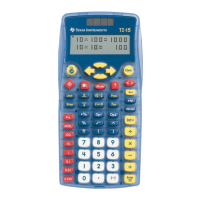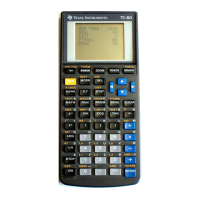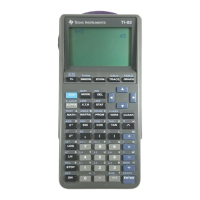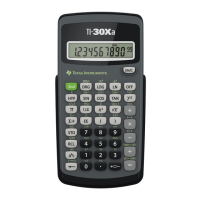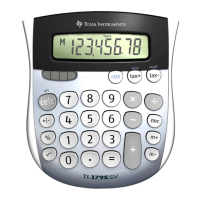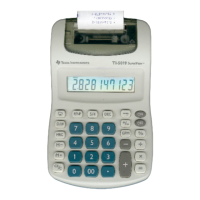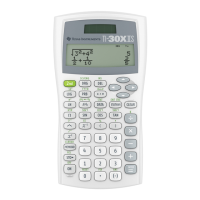"This is some text"→sometext
"drop-down here:"→ddtitle
{"item1","item2"}→dditems
"dropvar"→ddvar
©Initialize the dialog box string
"dialog"→dbox
©Build the dialog box string
dbttl(dbox,boxtitle)→dbox
dbreq(dbox,promptn,vname)→dbox
dbdrd(dbox,ddtitle,dditems,ddvar)→dbox
dbtxt(dbox,sometext)→dbox
©Terminate the dialog box string
dbend(dbox)→dbox
©Display the dialog box
expr(dbox)
EndPrgm
In this example, I use the local variable dbox to hold the dialog box string. Note that the dbox is
initialized to "dialog"; you must always initialize your dialog box string just like this.
After dbox is initialized, I call each of the four functions to create the title, a request, a drop-down menu
and some text. Note that the first argument of each function is the dialog box string dbox. Each function
simply appends the appropriate string to the current dbox. The table below shows the arguments for
each function.
db: dialog box string
txt: text string
dbtxt(db,txt)Add text
db: dialog box string
prmpt: prompt string
ddlist: list of menu item strings
ddvar: variable name as a string
dbdrd(db,prmpt,ddlist,ddvar)Add drop-down menu
db: dialog box string
promptn: prompt string
vname: variable name as a string
dbreq(db,promptn,vname)Add Request
db: dialog box string
titletext: string to use for title
dbttl(db,titletext)Create box title
ArgumentsCall conventionDescription
Here is the code for the functions:
dbttl(db,titletxt)
func
db&":title "&char(34)&titletxt&char(34)
Endfunc
dbreq(db,promptn,vname)
func
db&":request "&char(34)&promptn&char(34)&","&vname
Endfunc
9 - 8

